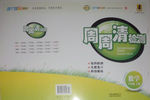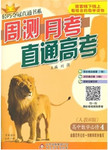题目内容
---My watch is out of order.
---Then why don’t you have ____?
A.repaired it B.to repair it
C.it repaired D.it to be repaired
C

 周周清检测系列答案
周周清检测系列答案 轻巧夺冠周测月考直通高考系列答案
轻巧夺冠周测月考直通高考系列答案--- What’s the time?
--- Oh, I forgot to have my watch ______.
| A.wind | B.wound | C.winded | D.winding |
Why does night fall but never break and day break but never fall?
Why are people who ride motorcycles called bikers and people who ride bikes called cyclists?
In what other language do people drive in a parkway and park in a driveway?
In what other language do they call the third hand on the clock the second hand?
Let’s face it: English is a crazy language. There is no egg in an eggplant, neither pine nor apple in a pineapple and no ham in a hamburger. Sweet-meats are candy, while sweetbreads, which aren’t sweet, are meat.
We take English for granted. But when we explore its paradoxes (探讨它的矛盾), we find that quicksand can work slowly, boxing rings are square, public bathrooms have no baths in them.
And why is it that a writer writes, but fingers don’t fing, grocers don’t groce, and hammers don’t ham? If the plural of tooth is teeth, shouldn’t the plural of booth be beeth? One goose, two geese — so one moose, two meese?
How can a slim chance and a fat chance be the same, while a wise man and a wise guy are opposites? How can overlook and oversee be opposites, while quite a lot and quite a few are alike? How can the weather be hot as hell one day and cold as hell the next?
English was invented by people, not computers, and it reflects the creativity of human beings. That’s why, when stars are out, they are visible; but when the lights are out, they are invisible. And why, when I wind up my watch, I start it; but when I wind up this essay, I end it.
【小题1】 According to the passage ______.
| A.sweet-meats and sweetbreads are different things |
| B.there should be egg in an eggplant |
| C.pineapples are the apples on the pine tree |
| D.boxing rings should be round |
| A.A wise man and a wise guy. |
| B.Overlook and oversee. |
| C.Quite a lot and quite a few. |
| D.Hot as hell and cold as hell. |
| A.blow | B.roll up | C.get hurt | D.finish |
| A.clever | B.crazy | C.lazy | D.dull |
Why does night fall but never break and day break but never fall?
Why are people who ride motorcycles called bikers and people who ride bikes called cyclists?
In what other language do people drive in a parkway and park in a driveway?
In what other language do they call the third hand on the clock the second hand?
Let’s face it: English is a crazy language. There is no egg in an eggplant, neither pine nor apple in a pineapple and no ham in a hamburger. Sweet-meats are candy, while sweetbreads, which aren’t sweet, are meat.
We take English for granted. But when we explore its paradoxes (探讨它的矛盾), we find that quicksand can work slowly, boxing rings are square, public bathrooms have no baths in them.
And why is it that a writer writes, but fingers don’t fing, grocers don’t groce, and hammers don’t ham? If the plural of tooth is teeth, shouldn’t the plural of booth be beeth? One goose, two geese — so one moose, two meese?
How can a slim chance and a fat chance be the same, while a wise man and a wise guy are opposites? How can overlook and oversee be opposites, while quite a lot and quite a few are alike? How can the weather be hot as hell one day and cold as hell the next?
English was invented by people, not computers, and it reflects the creativity of human beings. That’s why, when stars are out, they are visible; but when the lights are out, they are invisible. And why, when I wind up my watch, I start it; but when I wind up this essay, I end it.
1. According to the passage ______.
|
A.sweet-meats and sweetbreads are different things |
|
B.there should be egg in an eggplant |
|
C.pineapples are the apples on the pine tree |
|
D.boxing rings should be round |
2.Which of the following includes two items which have the similar meaning?
|
A.A wise man and a wise guy. |
|
B.Overlook and oversee. |
|
C.Quite a lot and quite a few. |
|
D.Hot as hell and cold as hell. |
3.The underlined words “wind up” in the last paragraph probably mean “______”.
|
A.blow |
B.roll up |
C.get hurt |
D.finish |
4. Through the many paradoxes in the English language, the writer wants to show that human beings are ______.